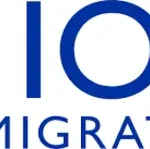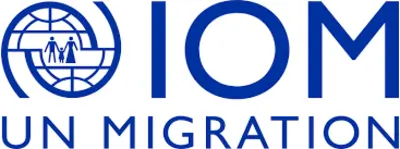
International Organization for Migration
Position Title: Monitoring and Reporting Officer (Fund Secretariat)
Duty Station: Juba, South Sudan
Classification: Professional Staff, Grade P2
Type of Appointment: Special short-term graded, 9 months with possibility of extension
Estimated Start Date: As soon as possible
Closing Date: 07 February 2024
Established in 1951, IOM is a Related Organization of the United Nations, and as the leading UN agency in the field of migration, works closely with governmental, intergovernmental and non-governmental partners. IOM is dedicated to promoting humane and orderly migration for the benefit of all. It does so by providing services and advice to governments and migrants.
IOM is committed to a diverse and inclusive work environment. Read more about diversity and inclusion at IOM at www.iom.int/diversity.
Applications are welcome from first- and second-tier candidates, particularly qualified female candidates as well as applications from the non-represented member countries of IOM. For all IOM vacancies, applications from qualified and eligible first-tier candidates are considered before those of qualified and eligible second-tier candidates in the selection process.
For the purpose of this vacancy, the following are considered first-tier candidates:
- Internal candidates
- Candidates from the following non-represented member states:
Antigua and Barbuda; Barbados; Botswana; Cabo Verde; Comoros; Congo (the); Cook Islands; Dominica; Fiji; Grenada; Guinea-Bissau; Holy See; Iceland; Kiribati; Lao People’s Democratic Republic (the); Madagascar; Marshall Islands; Micronesia (Federated States of); Namibia; Nauru; Palau; Saint Kitts and Nevis; Saint Lucia; Solomon Islands; Suriname; The Bahamas; Tonga; Tuvalu; Uzbekistan; Vanuatu
Second tier candidates include:
All external candidates, except candidates from non-represented member states.
Context:
IOM in South Sudan has a broad range of programming centred around three broad areas: humanitarian coordination and support, humanitarian response and resilience, and peacebuilding, transition, and development. Humanitarian coordination and support include leading/co-leading the Camp Coordination and Camp Management (CCCM) and Shelter and Non-Food Items (NFI) Clusters, Displacement Tracking Matrix (DTM), Water, Sanitation and Hygiene (WASH), and management of WASH and Shelter and NFI core-pipelines, humanitarian hubs and standard transport services. Humanitarian response and resilience include CCCM, WASH, Shelter & NFI, Health, Protection, Mental Health and Psychosocial Support (MHPSS) and the management of a Rapid Response Fund. Under peacebuilding, transition and development, IOM South Sudan implements programming on housing, land and property issues, transition and recovery, transhumance conflict prevention, community-based violence reduction, community development and migration management.
The recently revitalized peace process offers new opportunities for South Sudan to realise transformational change and move beyond the cycles of conflict and violence that have propagated widespread aid dependency. The South Sudan Reconciliation, Stabilization, and Resilience Trust Fund (South Sudan RSRTF) has been established to provide immediate and flexible financing to support integrated programs that reduce conflict drivers and promote self-reliant communities. The Fund adopts an innovative whole-of-system, area-based programming approach to overcome fragility, political instability, and societal disintegration. It is governed by a Steering Committee and is anchored in the United Nations Cooperation Framework (UNCF) to support the implementation of the Revitalized Agreement on the Resolution of the Conflict in the Republic of South Sudan (R-ARCSS). The Fund’s Secretariat, embedded within the Office of the Deputy Special Representative of the Secretary-General/Resident Coordinator/Humanitarian Coordinator (DSRSG/RC/HC) at United Nations Mission in South Sudan (UNMISS), provides administrative and programmatic support.
Under the direct supervision of the Chief of Mission of IOM South Sudan and the overall guidance of the Secretariat Fund Manager under Resident Coordinator/Humanitarian Coordinator (RC/HC) and within the limits of delegated authority, the Monitoring and Reporting Officer (Fund Secretariat) will work closely with the fund management to contribute to the establishment and continue the implementation of M&E systems/tools that promote evidence-based decision-making, programme and project performance tracking, and internal management.
Core Functions / Responsibilities:
- Under the overall guidance of the Fund Manager, implement and check compliance with monitoring, reporting and learning requirements in place for the South Sudan Multi Partner Trust Fund for Reconciliation, Stabilization, and Resilience.
- Ensure implementation and check compliance with policies and standard guidelines in accordance with Steering Committee (SC) decisions and endorsed Reconciliation, Stabilization, and Resilience Trust Fund (RSRTF) guiding documents.
- Coordinate and monitor timely overall project reporting, including acting as a focal point for the Fund’s annual report exercise.
- Conduct regular field visits to project sites to monitor implementation of RSRTF funded projects, ensuring that implementation adheres to agreed M&E standards and norms and that it is in line with the project proposal and the grant agreement.
- Systematically compile and draft information updates on project status, keeping the Fund Manager and the SC, donors, and relevant stakeholders abreast of Fund activities.
- Coordinate data collection, analysis and preparation of information products on the Fund, including through the use of dashboards and other data visualisation methods.
- Coordinate monitoring, evaluation and learning processes, including reporting, and process enhancement and adaptation.
- Provide support and information in annual reports by contacting partners or analysing Monitoring, Evaluation and Learning (MEAL) as required.
- In close coordination with the Roving Field Coordination Officer, support Area Reference Group (ARGs) with relevant tools and capacity development for planning, monitoring, evaluation, and reporting.
- Under the supervision of the Fund Manager, make arrangements for third party monitoring for RSRTF funded projects as required.
- Support and participate in lessons learned exercises, audits and evaluations and other research activities and studies in close consultation with relevant partners and stakeholders.
- Perform such other duties as assigned.
Required Qualifications and Experience:
Education
- Master’s degree in Political or Social Sciences, Development Studies, Human Rights, International Relations, Law, Mathematics, Engineering, or a related field from an accredited academic institution with two years of relevant professional experience; or,
- University degree in the above fields with four years of relevant professional experience.
Experience
- Experience in designing and/or implementation of assessments, field-based research and analysis, protection monitoring, programmatic impact monitoring.
- Experience in research and assessments on post-conflict and peacebuilding.
- Experience of peacebuilding programming is desirable.
- Experience in South Sudan or in other conflict and post-conflict contexts in Africa is an asset.
- Experience in post-conflict environments is an asset.
- Experience with mandates and programmes in the recovery response, Internally Displaced Persons (IDPs), post-conflict environment, triple nexus, and development.
- Experience in the application of Gender awareness and sensitivity in the programming.
Skills
- Excellent analytical, communication, writing, reporting and presentation skills.
- Substantial knowledge of non-profit work including data collection and data analysis in post-conflict settings.
- Knowledge of peacebuilding and recovery Principles, international standards, and Frameworks.
- Knowledge of UN, IOM and Non-Governmental Organisation (NGO) mandates and programmes in the recovery response, Internally Displaced Persons (IDPs), post-conflict environment, triple nexus and development.
- Excellent coordination and computer literacy skills.
- Proven interpersonal skills and ability to work effectively and harmoniously with colleagues from diverse cultures and professional background.
- Demonstrated organizational skills; the ability to be flexible and work well under pressure in a fast-paced and detail-oriented team environment.
Languages
IOM’s official languages are English, French, and Spanish. All staff members are required to be fluent in one of the three languages.
For this position, fluency in English is required (oral and written). Working knowledge of Arabic is an advantage.
Proficiency of language(s) required will be specifically evaluated during the selection process, which may include written and/or oral assessments.
Notes
1 Accredited Universities are the ones listed in the UNESCO World Higher Education Database (https://whed.net/home.php).
Required Competencies:
Values – all IOM staff members must abide by and demonstrate these five values:
- Inclusion and respect for diversity: Respects and promotes individual and cultural differences. Encourages diversity and inclusion.
- Integrity and transparency: Maintains high ethical standards and acts in a manner consistent with organizational principles/rules and standards of conduct.
- Professionalism: Demonstrates ability to work in a composed, competent and committed manner and exercises careful judgment in meeting day-to-day challenges.
- Courage: Demonstrates willingness to take a stand on issues of importance.
- Empathy: Shows compassion for others, makes people feel safe, respected and fairly treated.
Core Competencies – behavioural indicators level 2
- Teamwork: Develops and promotes effective collaboration within and across units to achieve shared goals and optimize results.
- Delivering results: Produces and delivers quality results in a service-oriented and timely manner. Is action oriented and committed to achieving agreed outcomes.
- Managing and sharing knowledge: Continuously seeks to learn, share knowledge and innovate.
- Accountability: Takes ownership for achieving the Organization’s priorities and assumes responsibility for own actions and delegated work.
- Communication: Encourages and contributes to clear and open communication. Explains complex matters in an informative, inspiring and motivational way.
Managerial Competencies – behavioural indicators level 2
- Leadership: Provides a clear sense of direction, leads by example and demonstrates the ability to carry out the Organization’s vision. Assists others to realize and develop their leadership and professional potential.
- Empowering others: Creates an enabling environment where staff can contribute their best and develop their potential.
- Building Trust: Promotes shared values and creates an atmosphere of trust and honesty.
- Strategic thinking and vision: Works strategically to realize the Organization’s goals and communicates a clear strategic direction.
- Humility: Leads with humility and shows openness to acknowledging own shortcomings.
IOM’s competency framework can be found at this link.
https://www.iom.int/sites/default/files/about-iom/iom_revised_competency_framework_external.p df
Competencies will be assessed during a competency-based interview.
Other:
Internationally recruited professional staff are required to be mobile.
Any offer made to the candidate in relation to this vacancy notice is subject to funding confirmation.
This selection process may be used to staff similar positions in various duty stations. Recommended candidates will remain eligible to be appointed in a similar position for a period of 24 months.
The list of NMS countries above includes all IOM Member States which are non-represented in the Professional Category of staff members. For this staff category, candidates who are nationals of the duty station’s country cannot be considered eligible.
Appointment will be subject to certification that the candidate is medically fit for appointment, accreditation, any residency or visa requirements, and background verification and security clearances. Subject to certain exemptions, vaccination against COVID-19 will in principle be required for individuals hired on or after 15 November 2021. This will be verified as part of the medical clearance process.
Vacancies close at 23:59 local time Geneva, Switzerland on the respective closing date. No late applications will be accepted.
How to apply
Interested candidates are invited to submit their applications HERE by 07 February 2024 at the latest, referring to this advertisement.
IOM only accepts duly completed applications submitted through the IOM e-Recruitment system. The online tool also allows candidates to track the status of their application.
Only shortlisted candidates will be contacted.
For further information please refer to: www.iom.int/recruitment
Posting period:
From 25.01.2024 to 07.02.2024
No Fees:
IOM does not charge a fee at any stage of its recruitment process (application, interview, processing, training or other fee). IOM does not request any information related to bank accounts.
Requisition: SVN 2024 18 Monitoring and Reporting Officer (Fund Secretariat) (P2) Juba, South Sudan (58614325) Released
Posting: Posting NC58614326 (58614326) Released
Posting Channel: Internal Candidates
Deadline: 7 Feb 2024

